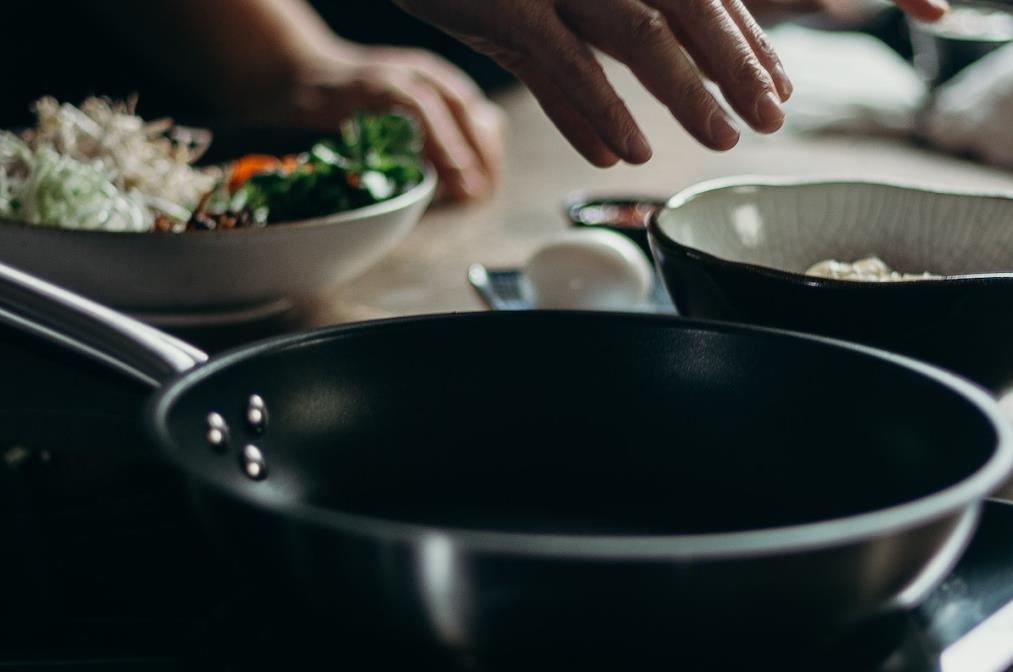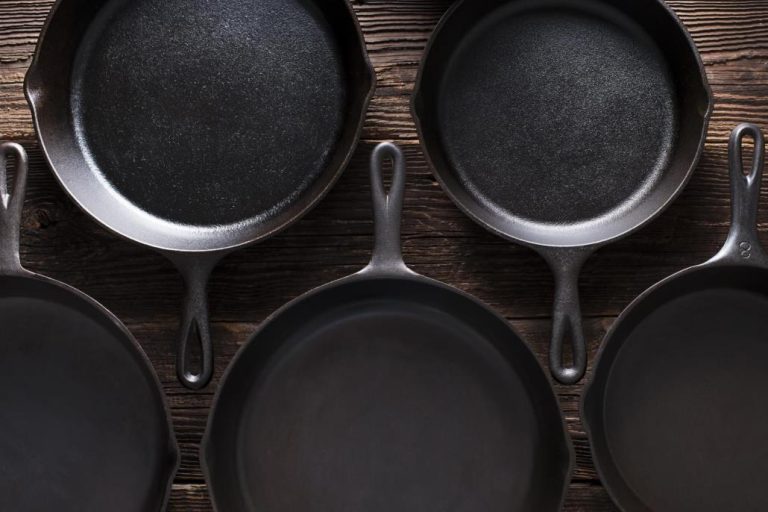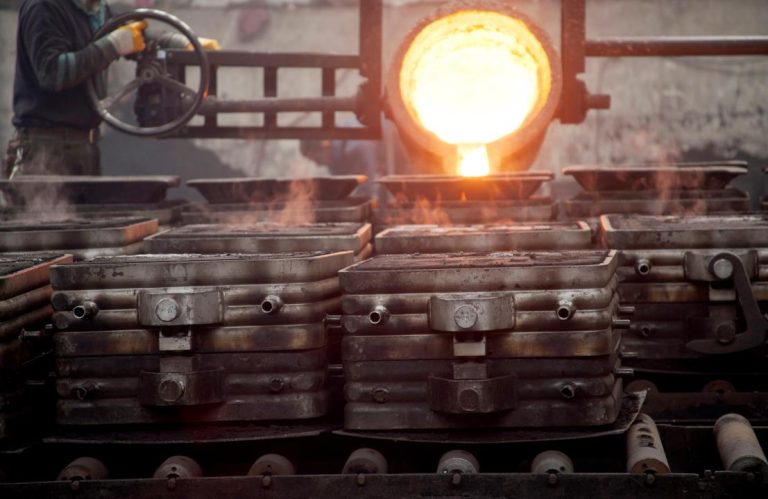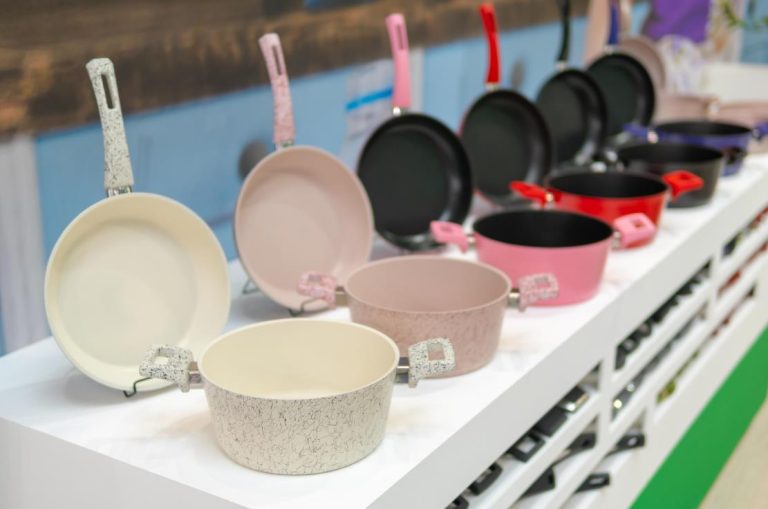Are you on the hunt for perfectly compatible cookware for induction cooktops? It’s true: induction cooktops are increasing in demand and for good reasons. These stoves boast a 10% improved energy transfer and demonstrate quick-heating tendencies compared to gas or ceramic stoves. With their rise, orders for induction-compatible cookware are increasing too.
One such cookware that businesses are on the lookout for is cast iron. Your next question might be, does cast iron work on induction?
The quick answer is yes, cast iron is an excellent choice to work with induction. Read on to learn about cast iron and how well it works on an induction cooktop.
How does an induction stove work?
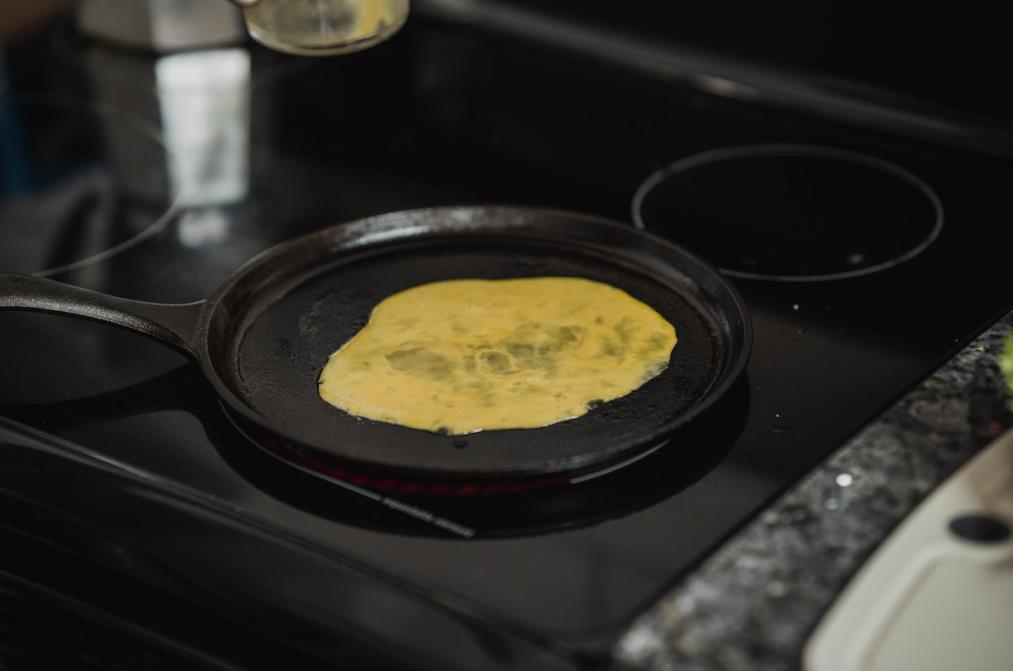
An induction stove isn’t like an ordinary gas stove, which relies on traditional heat sources to transfer heat. Instead, heat is transmitted to the cookware through electrical currents in a process called magnetic induction.
In simpler terms, an induction stove cooktop works through a copper wire coiled beneath the ceramic plate of the induction hob. When an electric current passes through the copper wire, it creates a magnetic field throughout the stove top and above it.
This magnetic field which creates the electrical current generates heat onto the cookware placed on top. The heat generated this way evenly warms up the contents of the cookware with an energy transfer of about 84%.
Since induction stoves work through magnetic induction, the cooking vessels used on them must either contain or be ferromagnetic metals such as stainless steel or cast iron. Therefore, one must ensure that their cooking vessels are suitable for induction stoves.
Does cast iron work on induction cooktops?
Cast iron is an alloy containing about 2-4% of carbon. Since cast iron encompasses iron, it has the ability to draw electromagnetic current and, therefore, is quite suitable to be used on induction cooktops.
Buy Wholesale Cookware and Start Scaling up with Us Today
Contact us and connect with a sales rep to get a free quote.
Using cast iron cookware on a gas stove vs. on inductions
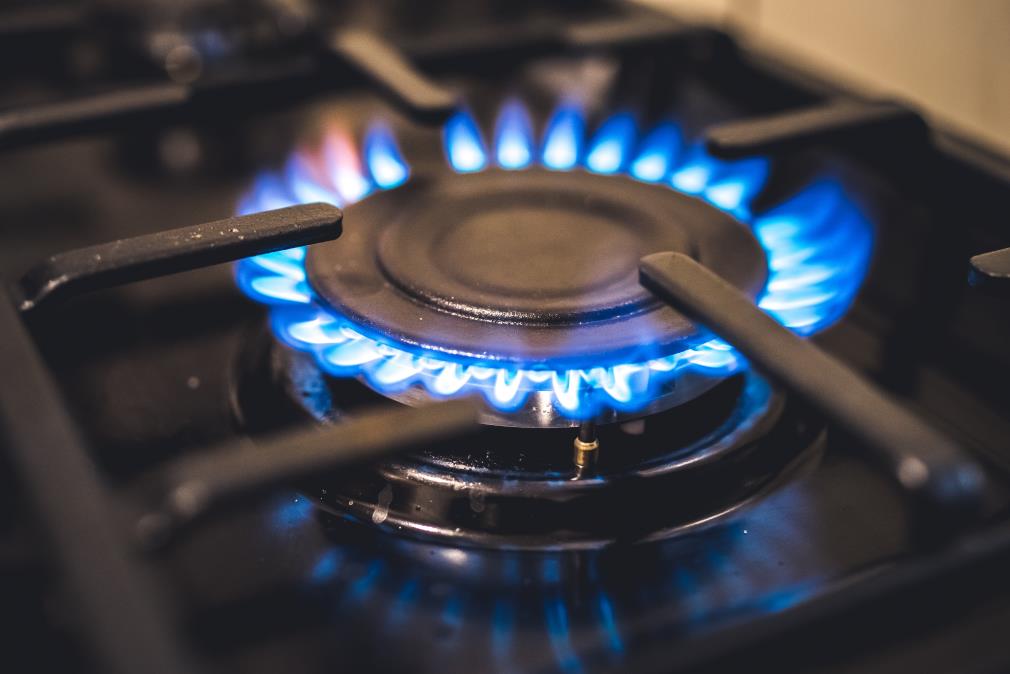
It is perfectly safe to use cast iron cookware on a gas stove as well as on induction. However, users must consider the fact that both cooktops differ in functionality and design, giving rise to the need to follow proper guidelines when cooking in cast iron utensils.
Temperature over time
A gas stove starts emitting the desired heat as soon as it is switched on. Induction cooktops, however, work differently from conventional gas stoves.
When turned on, the coils of the induction cooktop take some time to heat up to their full potential and may reach a high temperature before the cook knows it, increasing the chances of burning the food. Therefore, users must be more vigilant when cooking with iron cast utensils on an induction stove.
Maintenance and cleaning
Over time, oil residue may collect under cast iron utensils if not cleaned properly.
When cooking on an induction cooktop, users must ensure the cast iron pots and pans are clean at the bottom. Since the pan is in direct contact with the top of the induction stove, any oil residue can cause it to stain permanently.
How is cast iron cookware?
Cast iron is an incredibly durable cookware that can last generations to come with adequate care. Moreover, when seasoned correctly, they can double as non-stick cooktops and even work in the oven for baking.
There are many benefits of cooking with cast iron that make it an excellent cookware material:
Good heat retention
Heat retention refers to the cookware’s ability to hold onto heat. Cast iron has a high heat retention capacity, so it is slow to lose heat once the stove is switched off. Cast iron cookware is also less likely to burn food.
Moreover, it gives better browning and results in perfect sears. It can even tolerate high temperatures and make ideal cookware for slow-cooking dishes and soups.
Versatility
Cast iron works well with almost all cooking surfaces, such as gas, induction, and electric. Cast iron can be placed directly into the oven for baking or put on an open flame outdoors.
Even heat distribution
While cast iron is slow to heat up, it distributes heat evenly throughout for an even cook and is perfect for searing and browning. However, users must use the correct-sized burner to allow even heat retention.
Easy to clean
Cast iron is relatively easy to clean once the users know how to take care of it. To clean cast iron, wipe it with a dry paper towel. If it has food scraps or seasoning, use a plastic spatula to scrape them off, and then clean the cookware with water and soap.
Tips to use cast iron on inductions
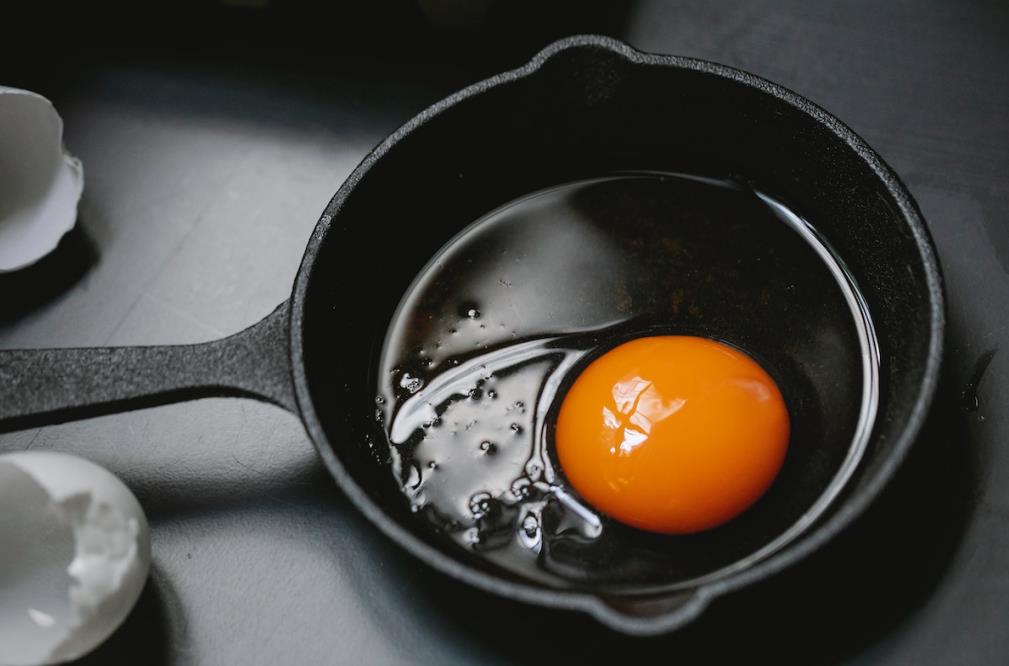
- Season the cast iron: Users must season their cast iron pans before use to prevent rusting. Seasoning also helps to create a naturally non-stick surface. Any cooking oil can be used to season cast iron.
- Select the right size of cookware: When buying cast iron cookware for induction cooktops, it is best to purchase one that is closest to the size of the stove’s burner. This ensures the utensil heats up evenly, resulting in perfectly cooked food.
- Don’t drag it on the surface: Cast iron is quite heavy and can potentially scratch the surface and ruin induction cooktops. Therefore, users should always be careful not to drag the cast iron cookware over the top. It is best to lift the utensil and place it back where needed to avoid any damage to the cooktop’s surface.
- Use parchment paper: If the pot is too heavy to lift and move, users can place a paper towel, parchment paper, or something similar between the cooktop and the cast iron pan before sliding it.
What cookware materials work well on induction?
Not all pots and pans are compatible to be used on induction stoves. Only cookware that is magnetically conductive and ferromagnetic will work on such stoves. Cookware materials such as cast iron, enameled steel, and stainless steel pans with core or iron bases work well on induction cooktops.
Following are some induction-compatible materials that can be used on induction cooktops besides cast iron:
Stainless Steel
Only cookware whose base encompasses a magnetic grade of stainless steel is compatible with induction cooking ranges.
Durable and non-corrosive, stainless steel is a good choice for induction cooking. Moreover, it is easy to clean and does not react with alkaline or acidic foods, unlike cast iron. They are also preferable when used for fast cooking.
However, like cast iron, stainless steel is a poor conductor of heat. Layering it with copper or aluminum helps distribute the heat more evenly than stainless steel would do alone.
Aluminum
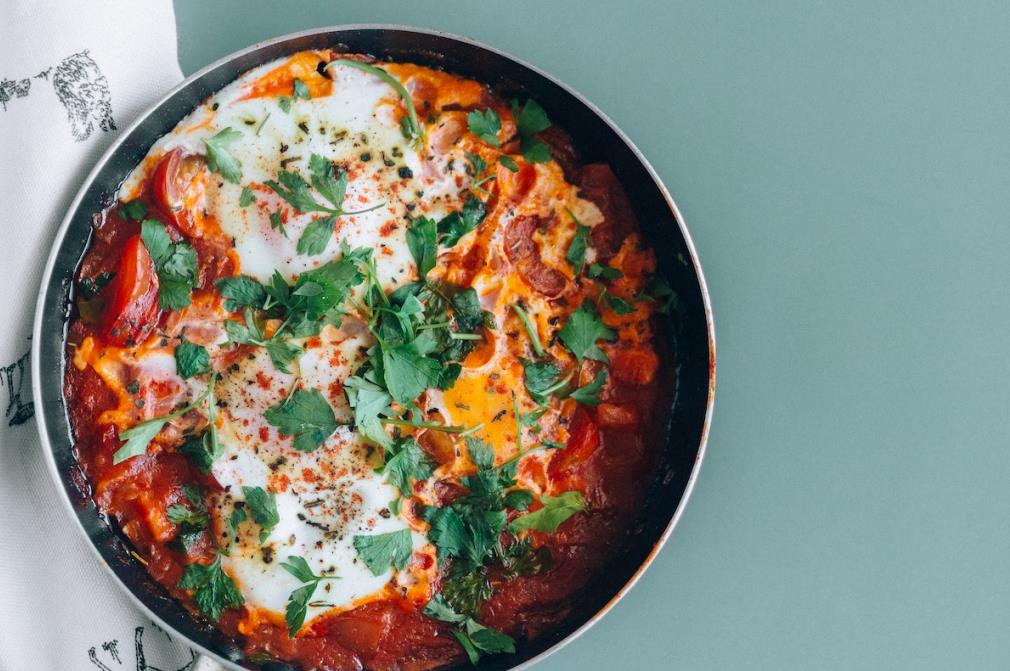
Aluminum works on induction stovetops only if its base is magnetized. Aluminum, an excellent heat conductor, distributes heat evenly unlike cast iron, and retains it well. It is also lightweight, affordable, and non-stick. Furthermore, cookware made with aluminum is easy to clean and doesn’t rust.
Carbon Steel
Another great cookware suitable for induction stovetops is carbon steel. Like cast iron, they are highly durable and can take on high heat, making them great for searing. In addition, they are good at even heat distribution and exhibit non-stick properties.
Carbon steel is lighter than cast iron. However, carbon steel requires proper maintenance to last longer and requires seasoning just like cast iron does.
Enameled cast iron
A modern version of the traditional cast iron, enameled cast iron has a layer of vitreous enamel glazed onto the surface. This enamel coating prevents the need to season the cast iron, allows for more thorough cleaning, and prevents rusting.
However, enameled cast iron is less conductive of heat than cast iron, an already poor heat conductor. On the other hand, enameled cast iron boasts better heat distribution.
Cast iron vs. enameled cast iron
Many customers also opt to buy enameled cast iron cookware owing to its characteristics. To help analyze the pros and cons of both, we have crafted a comparison of cast iron with enameled cast irons:
| Cast Iron | Enameled Cast Iron | |
| Durability | Traditional cast iron is highly durable | Like cast iron, it is durable, but the enamel coating is weak and may chip or scratch |
| Seasoning | Cast iron needs seasoning to prevent rusting | Enameled cast iron doesn’t require seasoning to prevent rust |
| Temperature | It works best at all temperatures: low, medium, and high. It can be used on open fire and ovens as well. | It works best at medium temperatures due to temperature limitations. It can’t be used on open fires, and oven use has temperature recommendations. |
| Heat Conduction | Poor conductor of heat | Even worse conductor of heat than cast iron |
| Heat Distribution | Even heat distribution with the right-sized cooktop | Better heat distribution than raw cast iron |
| Maintenance | Wash it after every use; poor maintenance leads to rusting | Enamel coating prevents rusting; easy to clean |
Buy Wholesale Cookware and Start Scaling up with Us Today
Contact us and connect with a sales rep to get a free quote.
Cast iron cookware selling guide
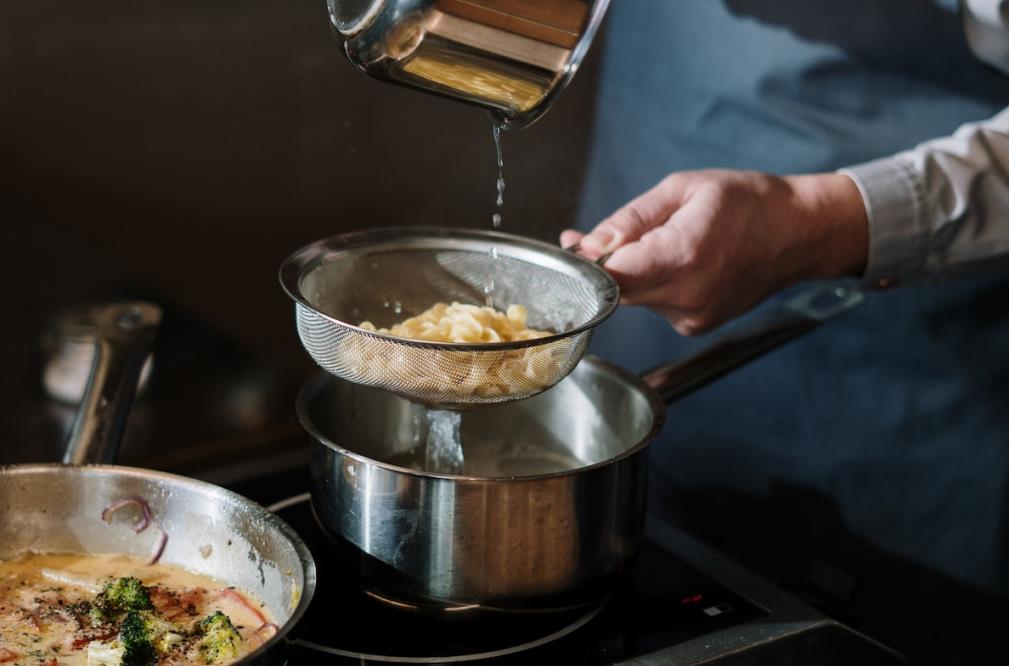
Thinking of selling cast iron cookware? Here are some tips and tricks to help you:
- Set up a fair price: Check listings in your region to see which cast iron products sell the most and buy accordingly. When setting up your stock to sell, make sure to set up a realistic and representative price similar to other competitors in the market.
- Use good photography: Make sure you are using high-quality pictures and precise details of your products to help users determine exactly what they want. Your photography should clearly demonstrate what you have to sell to attract customers to your product.
- Offer a unique selling proposition: Why should a customer buy from you when there are other options in the market? Research competition to improve your selling points and offer a unique selling proposition.
- Keep an eye on stock levels: Always keep track of your stock. Ensure you are never out of inventory and continuously adapt according to demand.
- Ask for feedback: Don’t neglect customer feedback, as it will help you improve. Asking for feedback will allow you to discover where you lack and how to improve your services.
Conclusion
Many people today choose to buy traditional cast iron cookware because of its versatility and durability. When used correctly, cast iron makes for a perfectly compatible cookware material to be used on induction cooktops.
At LeeKnives, we are always available to answer questions related to knives and general kitchenware. If you have any further questions, feel free to contact us for information or to learn about business opportunities.
